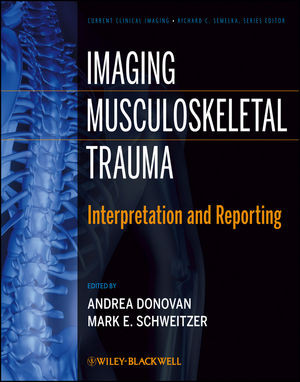

Most ebook files are in PDF format, so you can easily read them using various software such as Foxit Reader or directly on the Google Chrome browser.
Some ebook files are released by publishers in other formats such as .awz, .mobi, .epub, .fb2, etc. You may need to install specific software to read these formats on mobile/PC, such as Calibre.
Please read the tutorial at this link: https://ebookbell.com/faq
We offer FREE conversion to the popular formats you request; however, this may take some time. Therefore, right after payment, please email us, and we will try to provide the service as quickly as possible.
For some exceptional file formats or broken links (if any), please refrain from opening any disputes. Instead, email us first, and we will try to assist within a maximum of 6 hours.
EbookBell Team

4.7
26 reviewsOffers a well-designed approach to imaging musculoskeletal trauma
Medical imaging plays an important role in identifying fractures and helping the patient return to regular activities as soon as possible. But in order to identify the fracture, and describe all the relevant associated injuries, the radiologist first needs to understand normal anatomy and the mechanisms of fractures. Imaging Musculoskeletal Trauma reviews common fracture and dislocation mechanisms and provides up-to-date guidelines on the use and interpretation of imaging tests.
Designed for use by professionals in radiology, orthopedics, emergency medicine, and sports medicine, this book offers a concise, systematic approach to imaging musculoskeletal trauma. Replete with easily accessible information, including well-designed tables and lists, the book features radiology report checklists for each anatomic site, numerous radiographs and CT and MRI images, simple illustrations for common fracture classification schemes, examples of common and serious injuries in the musculoskeletal system, and a chapter devoted to fracture complications?including complications relating to the use of hardware in treating injuries.
This well-designed guide teaches professional and student users to:
Complete with on-call issues, common traumas, and specially highlighted "do-not-miss" fractures, this is an invaluable resource for everyone involved with the imaging of musculoskeletal trauma.Content:
Chapter 1 Essential Concepts in Imaging Musculoskeletal Trauma (pages 1–30): Andrea Donovan
Chapter 2 Pediatric Skeletal Trauma (pages 31–59): Elka Miller, Jorge Davila, Carmen Rotaru and Khaldoun Koujok
Chapter 3 Spine (pages 61–108): Chris Heyn and Rafael Glikstein
Chapter 4 Shoulder and Proximal Humerus (pages 109–139): Andrea Donovan
Chapter 5 Elbow and Forearm (pages 141–170): Philip Hodnett and Andrea Donovan
Chapter 6 Wrist and Hand (pages 171–209): Deep Chatha
Chapter 7 Pelvis and Proximal Femur (pages 211–251): Emad Almusa, Stamatis N. Kantartzis and Joshua Leeman
Chapter 8 Knee and Tibia And Fibula Shafts (pages 253–288): Andrew Lischuk, Edward Smitaman, Kristen Menn and Andrew Haims
Chapter 9 Ankle and Foot (pages 289–339): Adnan Sheikh
Chapter 10 Fracture Healing and Complications of Fractures (pages 341–377): Marcos Loreto Sampaio